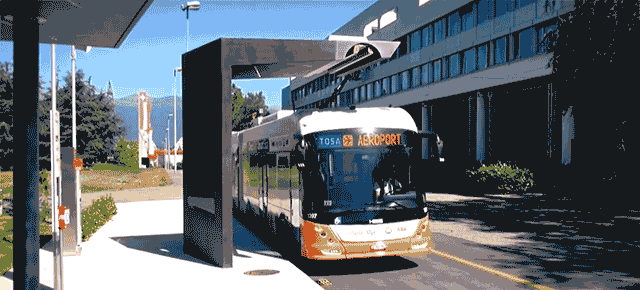Because battery technology still relatively sucks, electric vehicles like buses that have to run all day long usually stay tethered to a spiderweb of overhead cables. But as an alternative to that costly infrastructure, researchers at the EPFL have developed an electric bus that can recharge itself at every stop in as little as 15 seconds.
Converting a city’s surface road mass transit system still requires the charging stations to be installed at specific stops along given bus routes, but it requires far less of an investment than stringing up and maintaining overhead power lines, or tearing up the streets to install underground inductive charging cables.
There are some challenges facing the proposed system though. The researchers who created the charging stations are also working on software that can help a city figure out exactly where they’d need to install the charging stations to keep a network of buses running reliably.
In its current form, given the amount of power being transferred, only a single bus can charge at one time. And making another bus wait introduces delays that can propagate across the network. So implementing the system requires not only an investment in the hardware, but also a city rethinking routes, and how its existing surface mass transit system operates. Still, even with all of the logistical overhead, it could be a more promising path forward.
